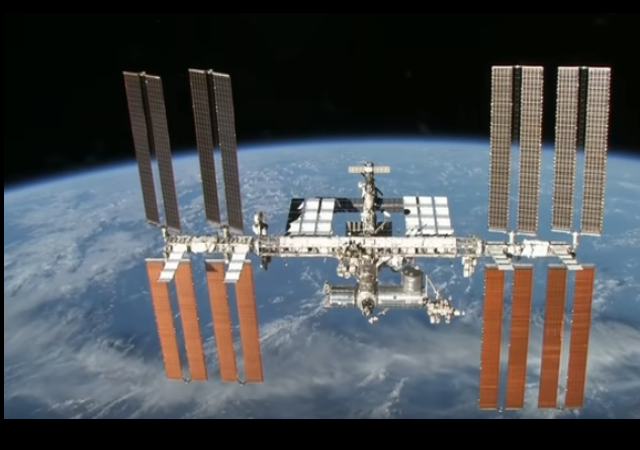NASA, SpaceX Successfully Launch ‘Crew 3’ Astronauts on Trip to Space Station
Launch occurs after ISS fires rockets to dodge chunk of destroyed Chinese satellite.

At least there seems to be one area in which we consistently report good news: Space.
It turns out that the public-private partnership for space program development championed by President Donald Trump is taking off spectacularly.
The National Aeronautics and Space Administation (NASA) and private rocket company SpaceX launched four astronauts into orbit Wednesday en route to the International Space Station.
The SpaceX-built launch vehicle, consisting of a Crew Dragon capsule perched atop a two-stage Falcon 9 rocket, climbed into the night sky from NASA’s Kennedy Space Center in Florida, as its nine Merlin engines roared to life at about 9 p.m. (0200 GMT Thursday).
Liftoff of the Dragon spacecraft, named Endurance by the crew, was aired live from Cape Canaveral on NASA TV. Intermittent rain and clouds over the Cape earlier in the day had cast doubt on launch prospects, but the weather cleared by flight time, NASA said.
Live video footage webcast by NASA showed the four crew members seated calmly and strapped into the pressurized cabin of their gleaming white SpaceX Crew Dragon capsule, wearing their helmeted white and black flight suits several minutes after liftoff.
Within about 10 minutes of liftoff, the rocket’s upper stage had delivered the crew capsule to Earth orbit, according to launch commentators. The rocket’s reusable lower stage separated from the rest of the spacecraft and flew itself back to Earth, touching down safely on a landing platform floating on a vessel in the Atlantic.
The capsule, named Endurance, is on its maiden voyage. The spacecraft features some enhancements from previous Crew Dragons.
The crew is to spend six months in orbit performing science experiments, spacewalks and space station maintenance before returning with a splashdown off the coast of Florida.
Such experiments include multiple studies of astronaut health during long periods in space, plant growth without soil in microgravity and a demonstration of sensors that could help flying robots navigate spaceships like the space station.
The launch comes on the heels of SpaceX Crew-2 Dragon returning from the International Space Station on Monday night. Once at the space station, Crew-3 will join NASA astronaut Mark Vande Hei and two Russian cosmonauts who are still on board.
Meanwhile, U.S. space tracking systems have detected a new object orbiting along with China’s recently launched Shijian-21 space debris mitigation technology satellite. The developments have many American officials concerned.
Given the lack of transparency the activities of Shijian-21 and its companion are likely to be closely tracked and scrutinized. It also follows complex maneuvers carried out in geostationary orbit by other Chinese test satellites in recent years.
China’s TJS-3 (Tongxin Jishu Shiyan-3) satellite launched in 2018 released a payload of unstated purposes. The pair maneuvered in concert and carried operations including spoofing, which involves coordinated maneuvers at certain times in an attempt to confuse rivals’ space tracking networks.
The activities take place in a context of growing tests of counterspace and clandestine activities in geostationary orbit by China, the U.S. and Russia.
The concern associated with this craft is that it can be used to crush and destroy American satellites.
However, China is already causing space-problems even without this new technology.
The International Space Station performed a short engine burn on Wednesday to avoid potentially hitting a chunk of space junk.
At 2315 Moscow Time (2015 UTC), the thrusters on Russia’s Progress MS-18 transport cargo vehicle, which is docked to the ISS, fired for 361 seconds to perform the small nudge, Roscosmos said.
The agency confirmed on Twitter it had successfully performed the shift, and that the ISS is now safe from a fragment of China’s Fengyun-1C weather satellite that was whizzing by.
Perhaps if the Biden administration kept more of Trump’s policies in place, it wouldn’t be crashing and burning in poll number and America would not be chanting “Let’s Go Brandon”.
Donations tax deductible
to the full extent allowed by law.








Comments
Can we move past this exceedingly short run yet? I mean that after all is why the billionaires are investing so heavily. This doesn’t pay mining does and you can’t mine the ISS.
You could if you tried. You wouldn’t get much money from it but it would be a start!
Another good milestone for private space endeavors. SpaceX is the clear leader so far, but there are other companies working diligently as well.
The more the better, I think.